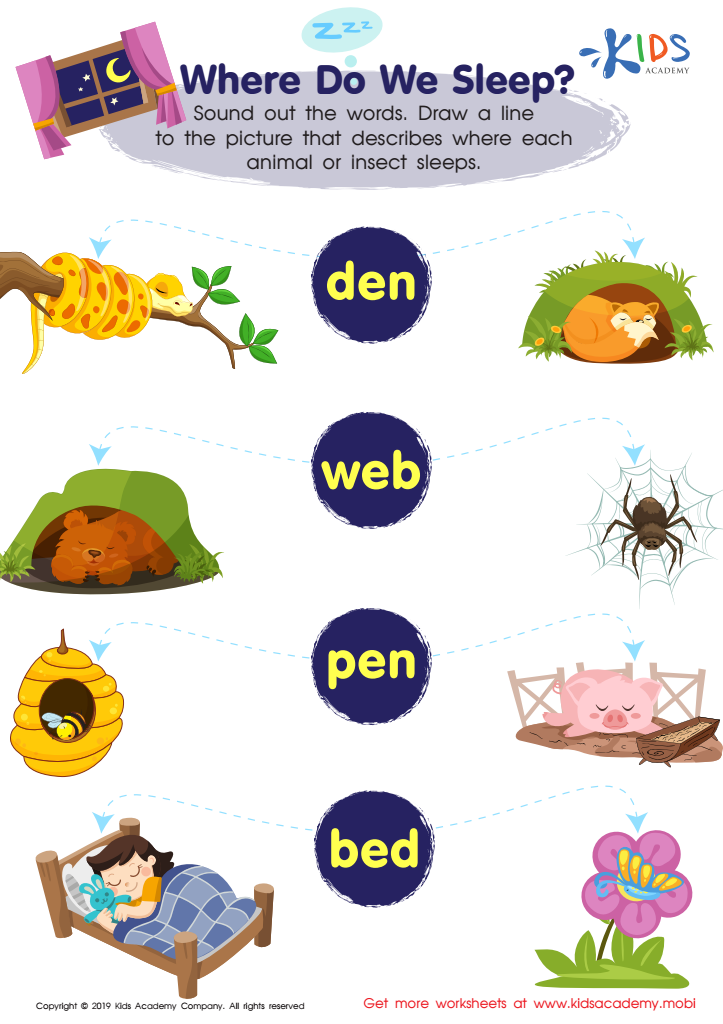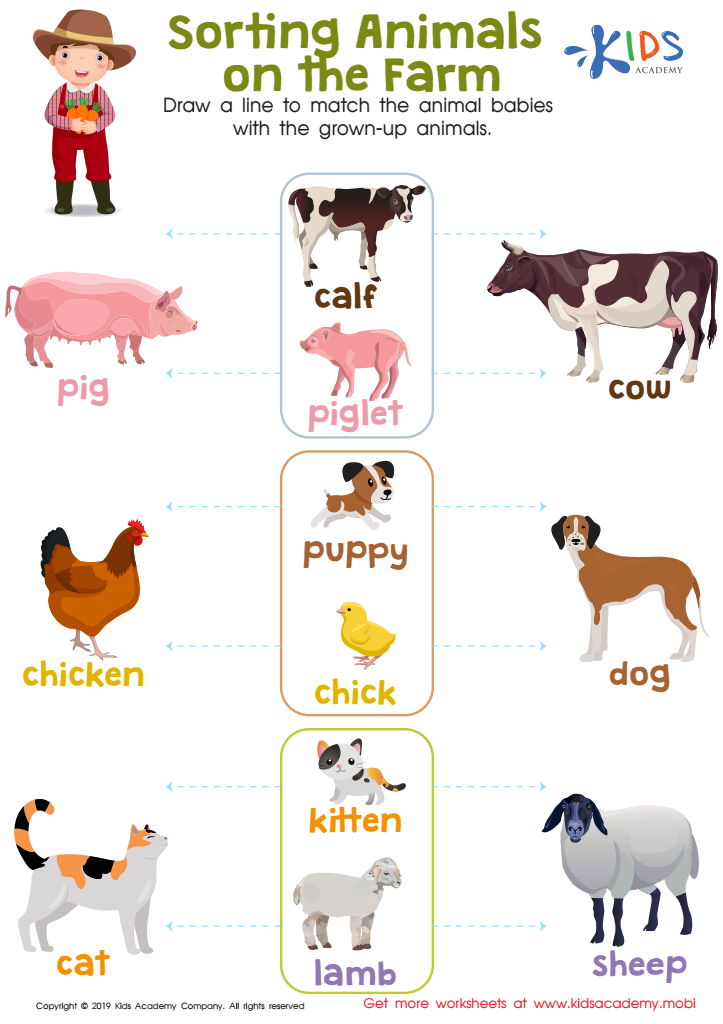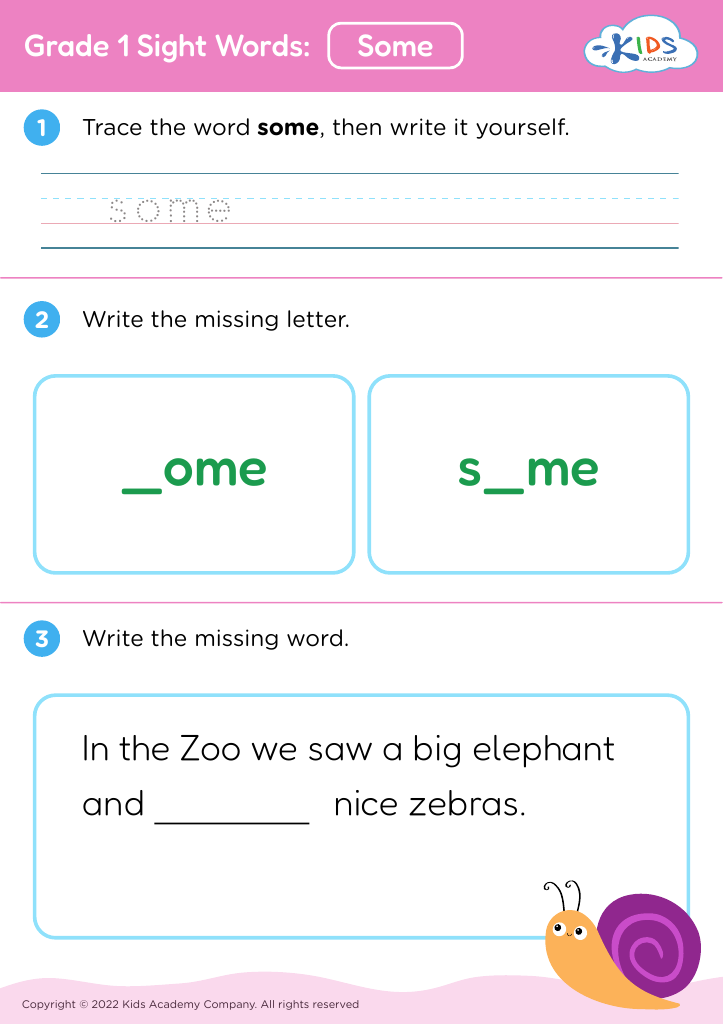Understanding habitats Building Vocabulary Worksheets for Ages 5-9
3 filtered results
-
From - To
Discover our "Understanding Habitats Building Vocabulary Worksheets" designed specifically for children aged 5-9. These engaging resources help young learners explore different ecosystems while expanding their vocabulary. With an emphasis on critical thinking and language skills, children will dive into engaging activities that nurture their understanding of diverse habitats. Each worksheet features colorful illustrations and age-appropriate language to captivate young minds. Perfect for use at home or in the classroom, these worksheets encourage curiosity about the natural world and facilitate meaningful discussions about living environments. Enhance your child's learning experience today with our specially crafted vocabulary-building materials!


Where Do We Sleep Worksheet


Sorting Animals on the Farm Worksheet
Parents and teachers play a vital role in a child's development, particularly when it comes to building a strong vocabulary and understanding habitats. For children aged 5-9, these foundational skills are crucial. Understanding habitats not only fosters an appreciation for nature but also enhances scientific inquiry skills. It encourages children to explore ecosystems, promoting curiosity about the world around them.
Building vocabulary related to habitats, such as "ecosystem," "habitat," "adaptation," and "environment," equips children with essential language skills that are critical for effective communication and comprehension. A well-rounded vocabulary helps children express their thoughts clearly and enhances their reading comprehension, which is linked to academic success.
Moreover, discussing habitats can initiate conversations about environmental stewardship and the importance of preserving biodiversity. This nurturing of vocabulary is best done in supportive learning environments where parents and educators collaborate to reinforce these concepts. Such engagement not only strengthens the child’s linguistic abilities but also promotes critical thinking and problem-solving skills. Ultimately, investing time in understanding habitats and vocabulary equips children with the tools they need to become informed, responsible, and empathetic individuals, preparing them for a more sustainable future.

 Assign to My Students
Assign to My Students



























